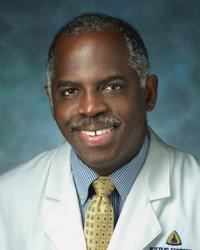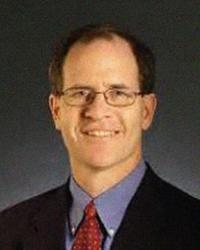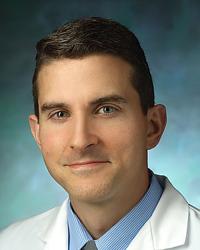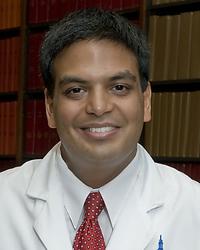Research Lab Results
-
Joel Blankson Lab
Work in the Joel Blankson Lab explores the mechanism of control of HIV-1 replication in a cohort of patients known as elite controllers or elite suppressors. These patients are HIV-1 seropositive but maintain levels of viremia that are below the limit of detection of standard clinical assays. We feel that elite suppressors represent a potential model for a therapeutic HIV vaccine. Our central hypothesis is that many of these patients are infected with fully replication-competent HIV-1 isolates that are held in check by the immune system. To test this hypothesis, we are studying many different host and viral factors in these patients.
-
Justin Bailey Lab
Research in the Justin Bailey Lab explores immune responses against hepatitis C virus (HCV), particularly neutralizing antibody responses, with the goal of guiding vaccine development against the virus. Recent studies have demonstrated that early and broad neutralizing antibody (nAb) responses against HCV are associated with HCV clearance, suggesting a key role for nAb in limiting HCV replication. The findings of this research will enhance understanding of how HIV infection may contribute to the lower rate of HCV clearance in HCV/HIV coinfected individuals, and the results could have implications for persistence of other viruses commonly occurring as coinfections with HIV. -
Jonathan Golub Lab
Research in the Jonathan Golub Lab focuses primarily on the epidemiology of tuberculosis (TB), specifically in patients infected with HIV. We work with the CDC to explore potential delays in TB diagnoses as well as the risk factors that contribute to death from TB in the United States. Our research also includes ongoing studies of HIV and TB patients in Brazil and South Africa.
-
Jennifer Foulke-Abel Lab
The Jennifer Foulke-Abel Lab performs basic and translational research on Infectious Diarrheal Diseases.
-
Christine Durand Lab
Dr. Christine Durand, assistant professor of medicine and oncology and member of the Johns Hopkins Kimmel Cancer Center, is involved in clinical and translational research focused on individuals infected with HIV and hepatitis C virus who require cancer and transplant therapies. Her current research efforts include looking at outcomes of hepatitis C treatment after solid organ transplant, the potential use of organs from HIV-infected donors for HIV-infected solid organ transplant candidates, and HIV cure strategies including bone marrow transplantation. Dr. Durand is supported by multiple grants: • R01 from the National Institute of Allergy and Infectious Diseases (NIAID) to study HIV-to-HIV organ transplantation in the US. • K23 from the National Cancer Institute (NCI) to study antiretroviral therapy during bone marrow transplant in HIV-1 infection. • U01 from the NIAID to study HIV-to-HIV deceased donor kidney transplantation. U01 from the NIAID to study HIV-to-HIV deceased donor liver transplantation.
-
Craig W. Hendrix Lab
Research in the Craig W. Hendrix Lab concentrates on the chemoprevention of HIV infection, clinical pharmacology of antiviral drugs, drug interactions, and oral, topical and injectable HIV microbicide development. Our lab conducts small, intensive sampling studies of PK and PD of drugs for HIV prevention with a focus on developing methods to better understand HIV and drug distribution in the male genital tract, female genital tract and lower gastrointestinal tract. We also support numerous HIV pre-exposure prophylaxis development studies from phase I to phase III, largely as leader of the Pharmacology Core Laboratory of both the Microbicide Trial Network and HIV Prevention Trials Network.
-
Caren L. Freel Meyers Laboratory
The long-term goal of the Caren L. Freel Meyers Laboratory is to develop novel approaches to kill human pathogens, including bacterial pathogens and malaria parasites, with the ultimate objective of developing potential therapeutic agents. Toward this goal, we are pursuing studies of bacterial isoprenoid biosynthetic enzymes comprising the methylerythritol phosphate (MEP) pathway essential in many human pathogens. Studies focus on understanding mechanism and regulation in the pathway toward the development of selective inhibitors of isoprenoid biosynthesis. Our strategies for creating new anti-infective agents involve interdisciplinary research in the continuum of organic, biological and medicinal chemistry. Molecular biology, protein expression and biochemistry, and synthetic chemistry are key tools for our research.
-
Charles W. Flexner Laboratory
A. Laboratory activities include the use of accelerator mass spectrometry (AMS) techniques to measure intracellular drugs and drugs metabolites. AMS is a highly sensitive method for detecting tracer amounts of radio-labeled molecules in cells, tissues, and body fluids. We have been able to measure intracellular zidovudine triphosphate (the active anabolite of zidovudine) in peripheral blood mononuclear cells from healthy volunteers given small doses of 14C-zidovudine, and have directly compared the sensitivity of AMS to traditional LC/MS methods carried out in our laboratory. B. Clinical research activities investigate the clinical pharmacology of new anti-HIV therapies and drug combinations. Specific drug classes studied include HIV reverse transcriptase inhibitors, protease inhibitors, entry inhibitors (selective CCR5 and CXCR4 antagonists), and integrase inhibitors. Scientific objectives of clinical studies include characterization of early drug activity, toxicity, and pharmacokinetics. Additional objectives are characterization of pathways of drug metabolism, and identification of clinically significant harmful and beneficial drug interactions mediated by hepatic and intestinal cytochrome P450 isoforms.
-
Center for Infection and Inflammation Imaging Research
In conjunction with the Molecular Imaging Center, the Center for Infection and Inflammation Imaging Research core provides state-of-the art small animal imaging equipment, including PET, SPECT, CT and US, to support the wide range of scientific projects within the diverse research community of the Johns Hopkins University and beyond. Trained technologists assist investigators in the use of these facilities. -
David Sack Lab
Research in the David Sack Lab focuses on enteric infections. Our team has worked to develop laboratory detection methods to better understand the epidemiology of these agents. We also work to create appropriate clinical management strategies, such as antibiotics and rehydration methods, for enteric infections. Our work has included participating in the development of vaccines for a range of bacterial infections, including rotavirus, cholera and enterotoxigenic E. coli.


